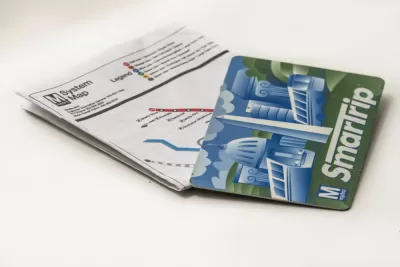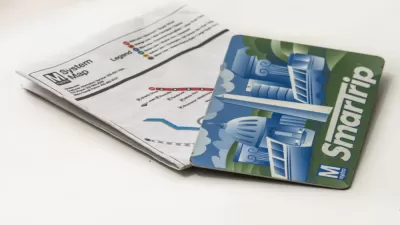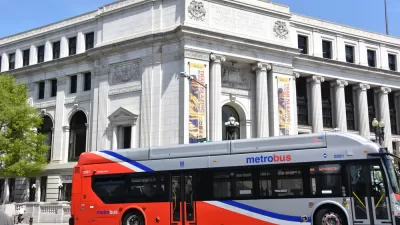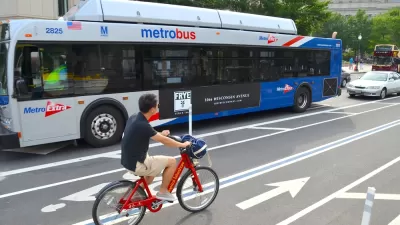A proposal to charge riders who pay fare in cash an extra 25 cents faces criticism.

Ron Thompson writes:
In an effort to speed up bus trips, WMATA has proposed a $0.25 fee for actions which slow down boarding, including paying with cash and reloading SmarTrip cards onboard. While speeding up bus service would be a boon for all riders, this proposal shifts the responsibility for dealing with a systemic issue onto individual clients—the poorest ones.
As implied by the end of that passage, Thompson suggests that the transit agency has many responsibilities in reducing dwell time, as do external factors like single-occupancy drivers. "Yet rather than focusing on the root causes of the issue, the agency is passing the buck to its most vulnerable—and most faithful—riders," according to Thompson.
Research noted in the article finds that many low-income people are also underbanked, and a penalty for cash payment would reinforce the perception that some riders matter more than others, according to Thompson.
FULL STORY: If WMATA makes buses more expensive for cash users, low-income riders could lose

Planetizen Federal Action Tracker
A weekly monitor of how Trump’s orders and actions are impacting planners and planning in America.

Map: Where Senate Republicans Want to Sell Your Public Lands
For public land advocates, the Senate Republicans’ proposal to sell millions of acres of public land in the West is “the biggest fight of their careers.”

Restaurant Patios Were a Pandemic Win — Why Were They so Hard to Keep?
Social distancing requirements and changes in travel patterns prompted cities to pilot new uses for street and sidewalk space. Then it got complicated.

California Homeless Arrests, Citations Spike After Ruling
An investigation reveals that anti-homeless actions increased up to 500% after Grants Pass v. Johnson — even in cities claiming no policy change.

Albuquerque Route 66 Motels Become Affordable Housing
A $4 million city fund is incentivizing developers to breathe new life into derelict midcentury motels.

DC Area County Eliminates Bus Fares
Montgomery County joins a growing trend of making transit free.
Urban Design for Planners 1: Software Tools
This six-course series explores essential urban design concepts using open source software and equips planners with the tools they need to participate fully in the urban design process.
Planning for Universal Design
Learn the tools for implementing Universal Design in planning regulations.
Heyer Gruel & Associates PA
JM Goldson LLC
Custer County Colorado
City of Camden Redevelopment Agency
City of Astoria
Transportation Research & Education Center (TREC) at Portland State University
Camden Redevelopment Agency
City of Claremont
Municipality of Princeton (NJ)





























